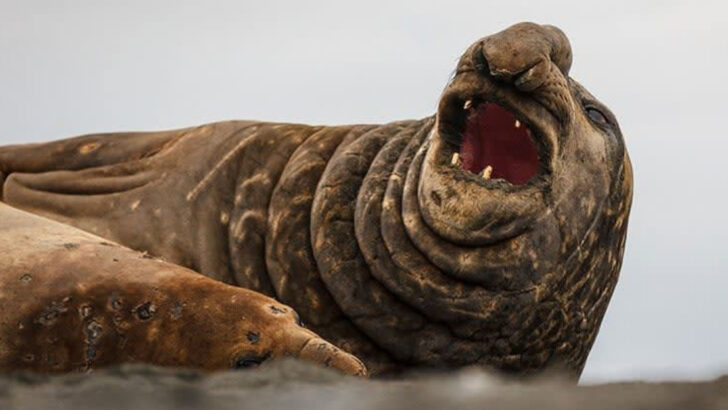The ocean’s apex predator isn’t as untouchable as you think.
Yes, the killer whale is a legend—fierce, intelligent, and terrifyingly strategic. But it’s not invincible. There are creatures lurking in the deep (and even above the waves) that could give it a serious run for its money.
We’re talking razor-toothed titans, armored beasts, and animals so venomous a single sting could stop even the boldest hunter cold. Some fight with brute force. Others play the long game. But all of them have what it takes to challenge the so-called king of the sea.
You might want to rethink who’s really in charge out there.
Because these twelve contenders?
They’re not backing down.
Sperm Whale
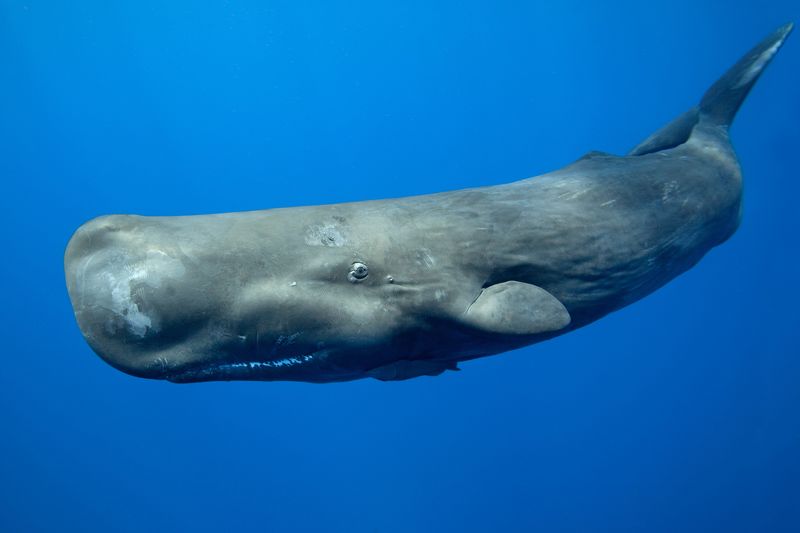
The sperm whale, known for its enormous head and deep diving prowess, could rival a killer whale. Capable of diving to depths of over 2,000 meters, it uses echolocation to hunt. Its diet primarily consists of giant squid, showing its capability to tackle large prey. With a powerful tail, it can deliver strong, defensive blows. Interestingly, sperm whales form social units, often defending each other from threats. Their complex social behavior and communication make them a unique contender. Despite its size, it displays agility in water. Could this giant of the deep be a worthy opponent?
Great White Shark
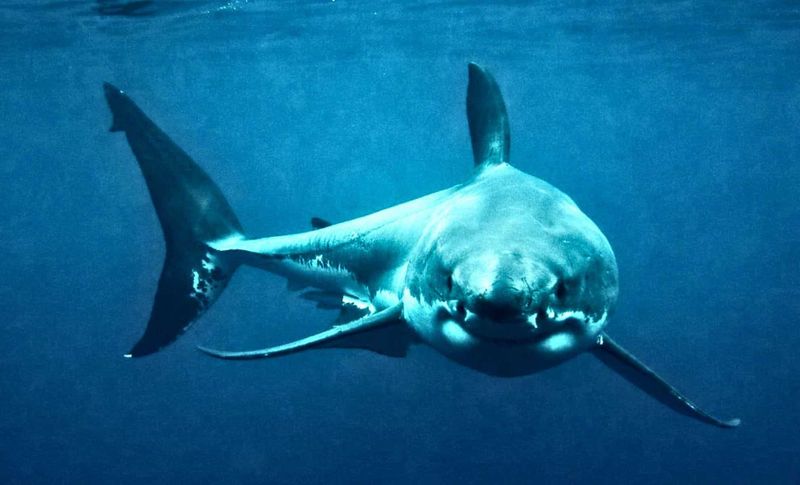
Renowned for its fearsome reputation, the great white shark is a powerful contender. Known for its speed and strength, it possesses a keen sense of smell and acute vision. These sharks are highly efficient predators, capable of ambushing prey with stealth and power. Interestingly, they have been known to attack and even prey on young killer whales. Their robust body and sharp teeth make them formidable. With the ability to breach the water surface and surprise their prey, they are unpredictable. Could the great white shark’s agility and force give it an edge in this aquatic contest?
Colossal Squid
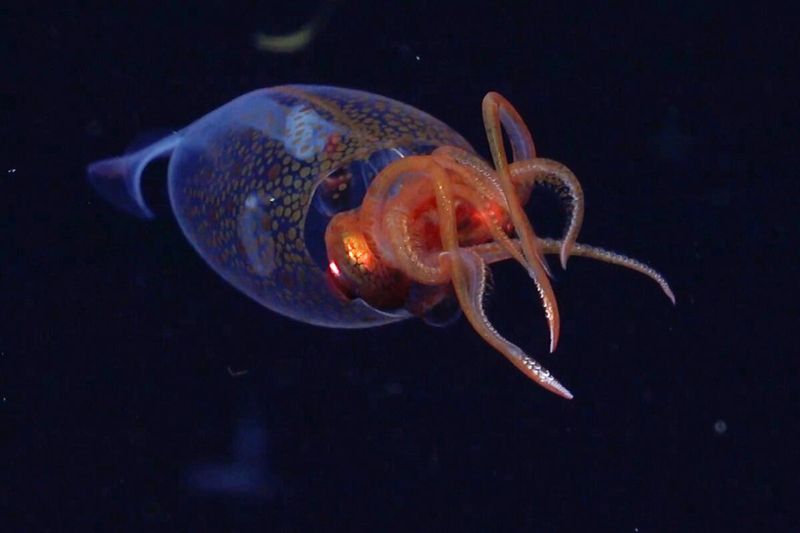
Lurking in the cold, dark depths of the Southern Ocean, the colossal squid presents a unique challenge. With eyes the size of dinner plates, it can detect predators in near darkness. Its elongated tentacles are armed with swiveling hooks, perfect for capturing prey. While not aggressive by nature, its size and capability to fight back make it noteworthy. Feeding on large fish and even attacking sperm whales, it demonstrates resilience. Its sheer size and the mystery surrounding its behavior add an intriguing element. Is the colossal squid the enigmatic challenger the killer whale doesn’t see coming?
Saltwater Crocodile
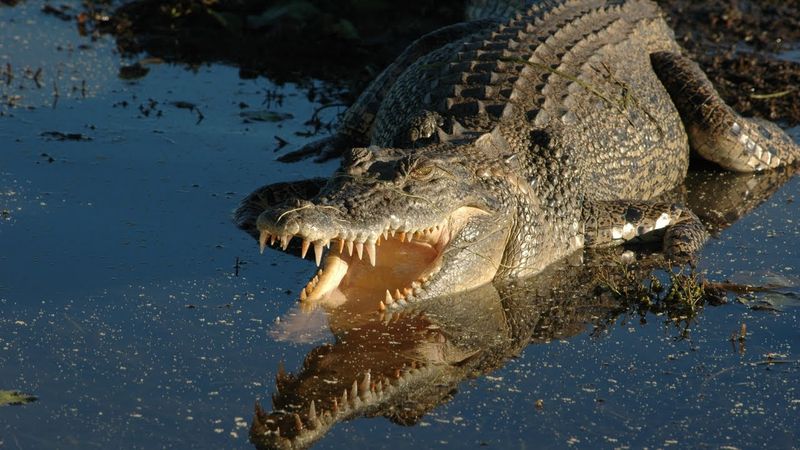
In the realm of aquatic predators, the saltwater crocodile holds a fearsome reputation. Equipped with one of the most powerful bites, it can crush bones with ease. Its armored body and stealthy nature allow it to ambush prey effectively. Often found in estuarine environments, it showcases remarkable adaptability. This prehistoric predator can inhabit both saltwater and freshwater, making it versatile. With a territorial nature and immense power, it commands respect. Could its raw strength and ambush tactics pose a serious threat to the killer whale, should they cross paths in the wild?
Humpback Whale
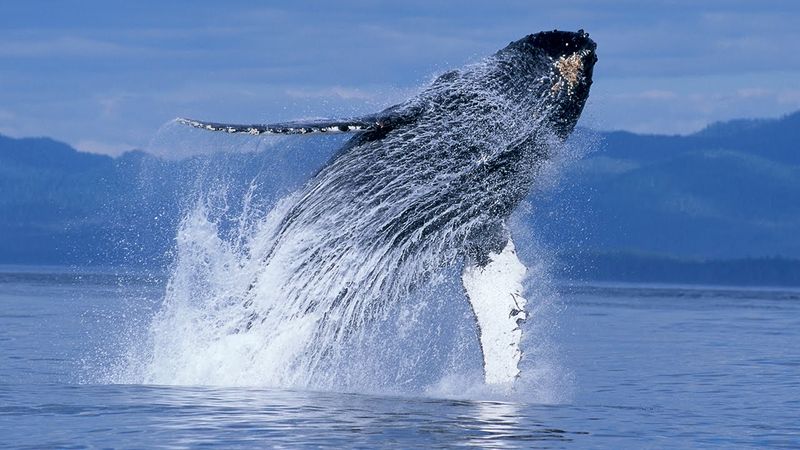
Majestic and enormous, the humpback whale is known for its acrobatic displays. Unlike many marine mammals, humpbacks are often seen breaching and slapping the water with their fins. These behaviors are not just for show; they can be aggressive and defensive. Interestingly, humpbacks have been observed protecting other species from orca attacks. Their size and strength, combined with a cooperative nature, make them remarkable. With a robust body and powerful flukes, they command the sea. Could the humpback’s social alliances and size be enough to deter a killer whale’s attack?
Polar Bear
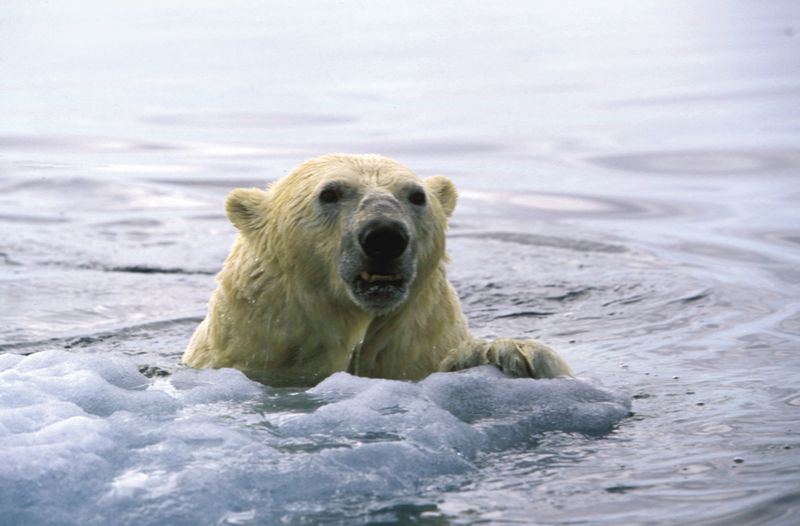
The polar bear, ruler of the Arctic, is a surprising contender. Although primarily a land-based predator, it is an adept swimmer. With powerful limbs and a keen sense of smell, it can hunt seals through thick ice. Its massive paws are not just for walking on ice; they are effective tools for swimming. Despite the killer whale’s aquatic dominance, the polar bear’s intelligence and adaptability in icy waters make it formidable. Its ability to navigate harsh environments is unmatched. Could the polar bear’s strategic prowess and strength give it an advantage over the ocean’s top predator?
Giant Pacific Octopus
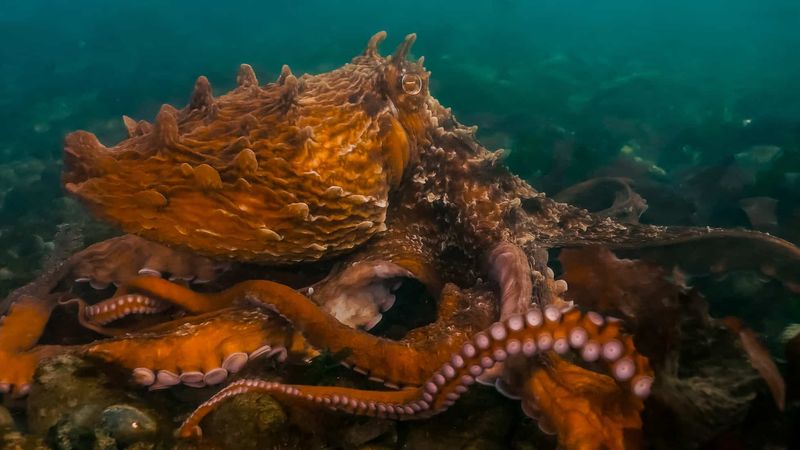
With a brain as large as a dog’s and a high level of intelligence, the giant Pacific octopus is an extraordinary cephalopod. Known for its problem-solving skills and ability to camouflage, it can evade predators effectively. Its strength lies in its flexibility and the power of its tentacles. Capable of squeezing through tight spaces and grasping objects with precision, it is a master of its domain. The octopus’s unique defense mechanisms, including ink release and rapid movement, add to its mystique. Can this clever cephalopod outsmart the killer whale in a test of wits and agility?
Leopard Seal
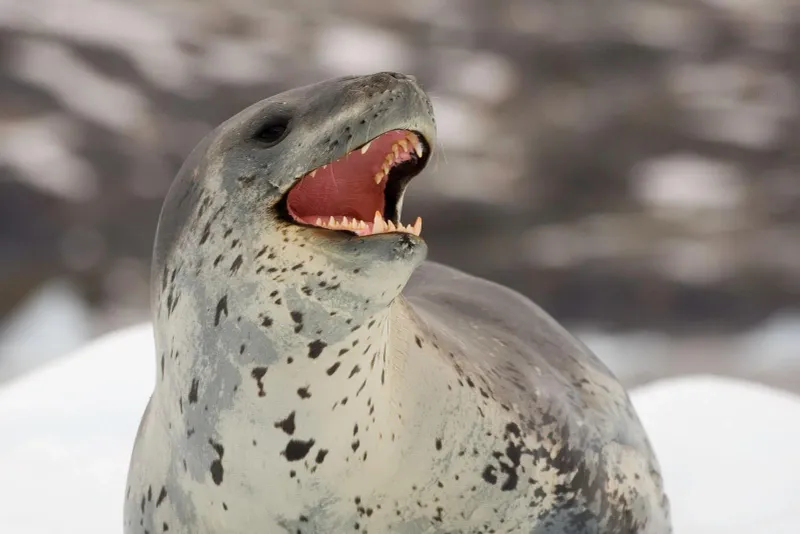
Known for its solitary and aggressive nature, the leopard seal is a top predator in the Antarctic region. With powerful jaws and a sleek body, it hunts penguins and other seals. Its agility in water and strong swimming capabilities make it a fearsome hunter. Leopard seals have also been observed attacking and challenging orcas. Their fierce nature and adaptability to icy waters make them formidable opponents. Despite its relatively small size compared to an orca, its tenacity and strategic hunting skills are noteworthy. Could the leopard seal’s ferocity and cunning pose a threat to the ocean’s notorious predator?
Killer Whale’s Relative: The False Killer Whale
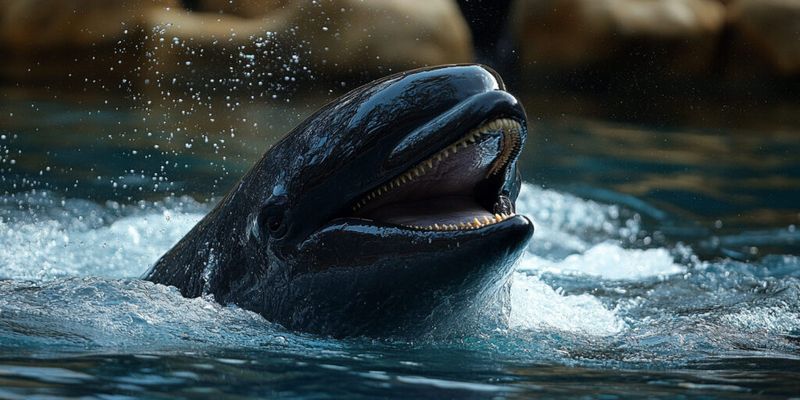
The false killer whale, a distant relative of the killer whale, is a sociable and intelligent marine mammal. Known for its playfulness and strong social bonds, it often forms pods that work together while hunting. With a body built for speed and agility, it can execute complex maneuvers in the water. Despite being smaller, its cooperative hunting tactics and social structure make it formidable. Could the false killer whale’s intelligence and teamwork challenge the dominance of its larger cousin in a contest of cunning and collaboration? Their shared lineage adds an intriguing dynamic to this potential rivalry.
Bull Shark
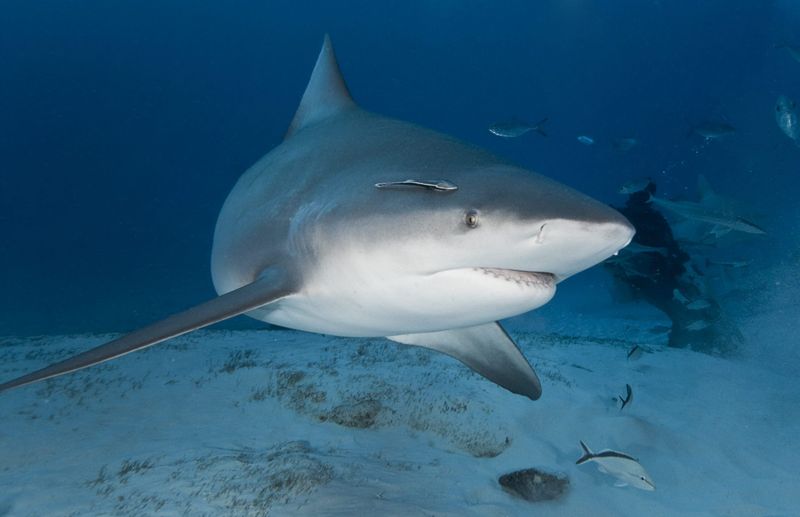
The bull shark is notorious for its aggressive nature and adaptability. Unlike many sharks, it can thrive in both salt and freshwater, often venturing far up rivers. Known for its short, sharp snout and stocky build, it can deliver powerful bites. Bull sharks have been involved in numerous attacks, showcasing their boldness. Their unpredictable behavior and ability to navigate different environments make them unique. Could the bull shark’s versatility and aggression provide a surprising edge against the killer whale, should their paths cross in riverine waters?
Elephant Seal
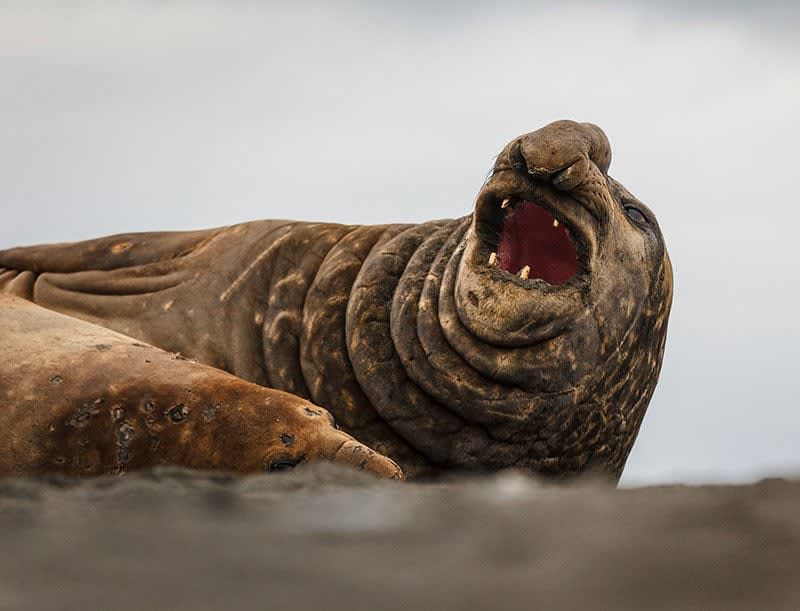
Elephant seals, named for their trunk-like noses, are the largest of the seal species. Males can grow to massive sizes, boasting incredible strength and resilience. Known for their deep ocean dives to hunt squid and fish, they are adept swimmers. During the breeding season, males engage in fierce battles for dominance, showcasing their power. Their thick blubber provides protection from cold waters and attacks. Can the elephant seal’s substantial size and strength offer a formidable challenge to the killer whale, particularly in the frigid waters they both inhabit?
Blue Whale
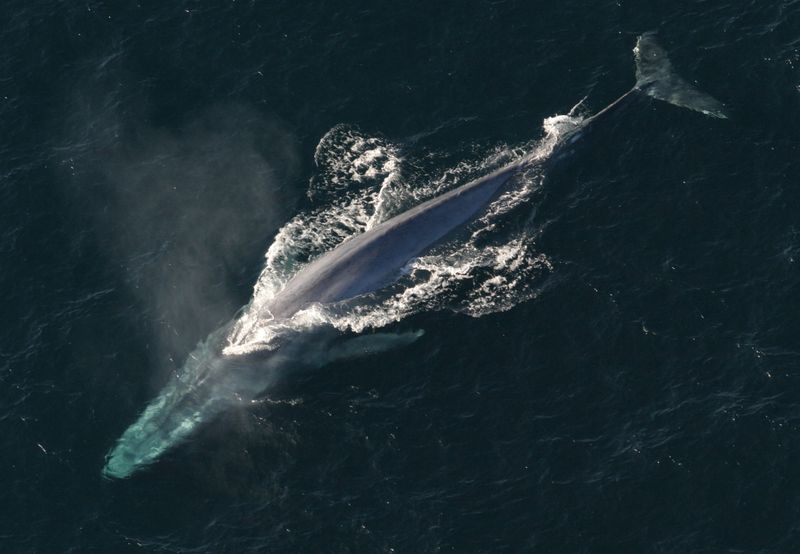
The blue whale, the largest animal on Earth, is an impressive contender. Its sheer size and strength make it a natural powerhouse in the ocean. Despite its primarily krill-based diet, it can exhibit surprising speed and agility when threatened. Known for their deep, resonant calls, blue whales communicate over vast distances. While generally gentle giants, their immense bulk and strength could deter would-be attackers. Could the blue whale’s colossal size and commanding presence be enough to turn the tables on the killer whale, reigning supreme in the ocean depths?

